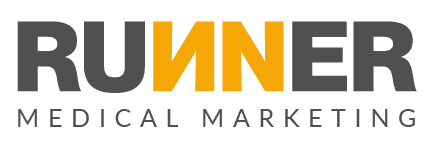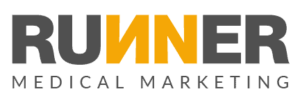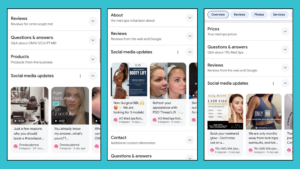
2023 has ushered in several new B2B healthcare marketing trends for healthcare startups and service companies. According to CB Insights, over 12,000 health tech startups are catering to the healthcare industry across the globe, and that number is increasing rapidly.
Deloitte estimates the global healthcare technology industry is now worth $300 billion and is expected to continue to grow at 12% a year. This means there is much opportunity for the healthcare technology, SaaS, and services companies to take advantage of those budgets.
Knowing this, staying up to date on the latest B2B healthcare marketing trends is essential.
It’s not enough to have a cutting-edge healthcare product offering. B2B healthcare partners need advanced marketing strategies to connect with and influence healthcare leaders, decision-makers, and buyers. Unfortunately, the traditional sales methods through in-person visits, trade shows, and conferences have taken a back seat to more strategic, digital tactics in the post-COVID era.
Let’s take a look at a few market trends in healthcare to be aware of
Ready to Grow?
Growth in Healthcare Account-Based Marketing (ABM)
Most B2B salespeople can list 5-10 companies they would love to have as customers when asked.
But what is the upper threshold of that knowledge? For example, do they know the key decision makers’ names or contact information? Do they see the company budget cycles and when they are most likely to sign a proposal?
Account-based marketing in healthcare is all about moving beyond “personas” and “target audiences” and outright marketing to real people in actual positions at real companies. For B2B healthcare companies, a good place to start with ABM is simply making a list of ideal companies and ideal job titles. Then, the areas where those lists intersect make a great starter ABM list.
There are several advanced tools with AMB lists to target and market to those specific people.
Here are some places to start:
1. ZoomInfo
This tool is perfect for filling in the gaps in B2B lists you already have.
For example, you can fill out attendee lists from healthcare conferences (in-person or virtual), webinars, and other sources with ZoomInfo’s database of names, job titles, phone numbers, emails, etc.
2. Definitive Healthcare
This list-building tool allows B2B healthcare professionals to target healthcare payer networks, provider systems, and ACOs through a robust filtering system. Input your target criteria, such as the number of beds, annual revenue, or job titles, and export a list for use in ABM tactics.
3. LinkedIn
Another good place to start is LinkedIn. The primary search feature can help draft a rudimentary ABM list, but B2B marketers and salespeople can also use LinkedIn Sales Navigator. This will allow you to add more filters to your search to narrow down to the best B2B prospects and provide you the opportunity to message them directly.
More like this: How To Use LinkedIn For B2B Healthcare Marketing
Contact RUNNER Agency for a free B2B consultation for even more advanced tactics.
Capturing Demand vs. Creating Demand
While account-based marketing has become an industry buzzword, it’s also made it clear that going only after leads isn’t enough. You have to build your brand. As a result, Healthcare B2B buyers’ decisions have changed, illustrated by the following framework.
Capturing Demand
Capturing demand means reaching the small number of prospective healthcare buyers that are already in market and actively looking. They are searching for solutions and are ready to buy. These prospects may also be searching for your brand. Common tactics to use in capturing demand include:
- SEO
- Google Ads
- Remarketing Ads
- Webinars
Creating Demand
This strategy goes after the 97% of your target market that isn’t actively in market. Some of them may not be ready to make a change, are locked into a contract with another vendor, or may not know they have a problem you can solve.
Creating demand is all about building awareness of your brand with your target audience and educating them so that your brand will be top-of-mind when they’re ready to buy.
Tactics to use here include:
- Thought leadership on social media
- Brand awareness and education ads on Linkedin & Facebook
- Event sponsorships
An Opportunity for Social Media Marketing in Healthcare
Speaking of LinkedIn, social media is an often overlooked opportunity for B2B healthcare targeting. It is easy to assume that social media is a primarily B2C channel. Still, according to recent research, employees in the healthcare industry spend over three hours a day on social media. In addition, Healthcare employees are more likely than any other profession to use Facebook for professional purposes.
Healthcare organizations need to stay on top of social media trends to ensure that their marketing campaigns reach the right audience.
With the move to digital in 2020, most healthcare professionals are getting bombarded by email marketing and advertising. However, social media presents an opportunity to make real connections in the digital space if done correctly.
When we think about social media marketing, most people jump straight to tools like Hootsuite and start pumping out posts for your brand’s pages.
Unfortunately, this tactic is no longer viable.
B2B Social Media Strategies
Instead, follow these strategies to bring your social media into the ’20s.
1. People, Not Brands
Healthcare leaders are more likely to respond to a Facebook or LinkedIn profile of a legitimate person rather than a faceless brand. This means salespeople must be willing to put themselves (or their profiles). Plus, healthcare leaders are even more likely to respond to former medical professionals, such as Chief Medical Officers.
2. Less is More
When it comes to thought leadership, several evergreen resources such as whitepapers and webinars will be much more helpful than daily posts about irrelevant, fictional holidays.
4. Stay on Target
Remember the ABM targeting and craft content specifically for the people and companies on that list. Watch your comments, and when someone from the ABM list engages with you, don’t be shy about reaching out.
Suggested Reads: Six Social Media Tips For Medical Practices and 4 Social Media Best Practices for Healthcare
Want more valuable resources? Follow RUNNER Agency on LinkedIn.
Build Client Relationships and Grow Revenue With Video
Video is the following mobile distribution method for B2B healthcare companies. Video is more than just another marketing tool. It’s a powerful method for retaining and building relationships between your brands and the healthcare decision-makers you want to target.
In 2020, many B2B healthcare brands saw the move from in-person events to digital as being hamstrung. Now, in 2023, we know this move is an essential evolution in connecting with, selling to, and serving our customers.
(Example of an explainer video)
B2B Medical Video Strategies
1. Explainer Videos
B2B buyers are taking research into their own hands and often don’t want to speak with a sales rep until they’ve done some research. Explainer videos that provide a basic understanding of what you do are a great way to help a prospective buyer understand your value proposition.
2. Thought Leadership
Webinars and short educationals remain a staple of digital marketing. However, in 2021, they are getting more visibility than ever. This is due to two main factors. First, social and search platforms are serving videos with new algorithmic preferences. Second, clinicians and healthcare leaders have become more comfortable with video as a medium after a full year of Zoom meetings.
3. Selling via Video
Before the pandemic, getting a prospect on a GoToMeeting or web conference was a hassle, especially in the medical B2B space. Clinicians and healthcare leaders didn’t want to learn how to use Skype for a healthcare-based SaaS product demo. Now, hopping on a Zoom link is second nature for most B2B prospects.
4. Personalized 1:1 Video
Video can also be an effective and easy way to build more personalized messaging when doing sales outreach. This is key in Healthcare B2B, where your total target market may be very small. To breakthrough, you have to make sure your message is personalized. We recommend shooting videos with personalized messaging for each prospect. You can use these tactics in cold email outreach, cold LinkedIn outreach, or follow-up to prospects who’ve downloaded a whitepaper. Still, they may not yet be ready for a sales call.
5. Product Onboarding
Especially when it comes to B2B healthcare-based SaaS products, client success is more important than ever. Happy customers lead to referrals and more sales. Tools like Loom are perfect for creating onboarding and training videos to set your new customers on a path to success.
Video is a critical component in healthcare B2B. Here are 16 types of medical marketing videos that you can implement into your marketing.
Video doesn’t have to break the bank. Discover new remote video options here.
Conclusion
With all these changes, it’s essential to stay focused on ROI and efficiency. But, if you’re ready to elevate your healthcare B2B marketing, you need a roadmap for success. RUNNER Agency specializes in helping B2B healthcare companies build their ABM strategies, connect with prospects, and grow through digital.
Contact our B2B marketing team today to discuss partnership opportunities.
More like this: 41 Ways to Attract New Patients to Your Practice in 2022




